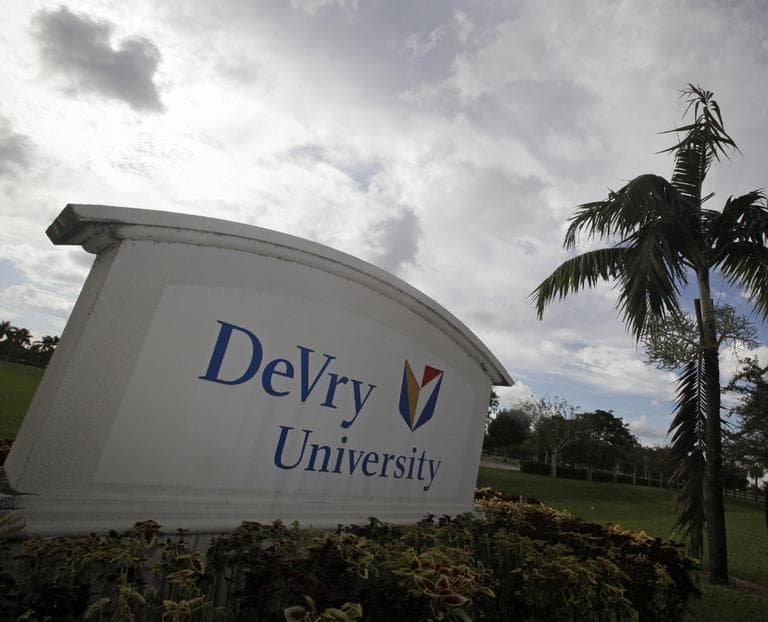Advertisement
For-Profit Colleges Under Fire
ResumeA muckraking journalist enrolls in a for-profit higher education, and finds a mess. We’ll tackle the controversy.

For-profit universities promise to make higher ed convenient, accessible and powerful for all comers, and they’ve got the testimonials to back that up. You’ve seen them on TV. But look under the hood, and there are big issues here. Big problems. Whopping dropout rates. Big debt burdens. A history of ruthless recruitment.
And huge financial burdens dumped on the federal government. The industry says it steps in where public and private schools fail. But its critics are on fire.
This hour On Point: a report from inside the troubled, fascinating world of for-profit higher education.
-Tom Ashbrook
Guests
Goldie Blumenstyk, senior writer for The Chronicle of Higher Education.
Christopher Beha, associate editor of Harper’s Magazine, his article in the October issue of Harper’s is “Leveling the Field: What I learned from for-profit education.”
Kevin Kinser, professor, Department of Educational Administration and Policy Studies at the University of Albany and author of "From Main Street to Wall Street: The Transformation of For-Profit Higher Education."
From Tom's Reading List
The New York Times "The Department of Justice and four states on Monday filed a multibillion-dollar fraud suit against the Education Management Corporation, the nation’s second-largest for-profit college company, charging that it was not eligible for the $11 billion in state and federal financial aid it had received from July 2003 through June 2011."
Huffington Post "The multi-state investigation comes as the Department of Justice is also stepping up its involvement in litigation against for-profit colleges. This week, Education Management Corp. of Pittsburgh, the second-largest publicly traded college corporation, acknowledged that the U.S. Attorney of Western Pennsylvania had intervened in a civil case that had been brought against the company."
Government Accountability Office "Undercover tests at 15 for-profit colleges found that 4 colleges encouraged fraudulent practices and that all 15 made deceptive or otherwise questionable statements to GAO's undercover applicants. Four undercover applicants were encouraged by college personnel to falsify their financial aid forms to qualify for federal aid--for example, one admissions representative told an applicant to fraudulently remove $250,000 in savings."
Excerpt
Full story here.
A report published this year by Harvard’s Graduate School of Education suggests that the chief factor holding this population back is precisely the “college for all” mentality. The authors of the report advocate directing resources to occupational certificates and other non-degree-based programs that prepare students for “middle skill” jobs—electricians, police officers, construction managers, health-care workers—jobs that are difficult or impossible to outsource.
These jobs require more than a high school diploma but something less than—or other than—a college degree. Such training has been a prime casualty of the Obama Administration’s degree obsession: the president’s proposed 2012 budget will increase overall education spending but cut funding for vocational and technical schools by 20 percent. Meanwhile, more and more students are pursuing master’s and other graduate degrees to distinguish themselves from typical college graduates, resulting in what some have called a “credentials race.”
This program aired on October 14, 2011.